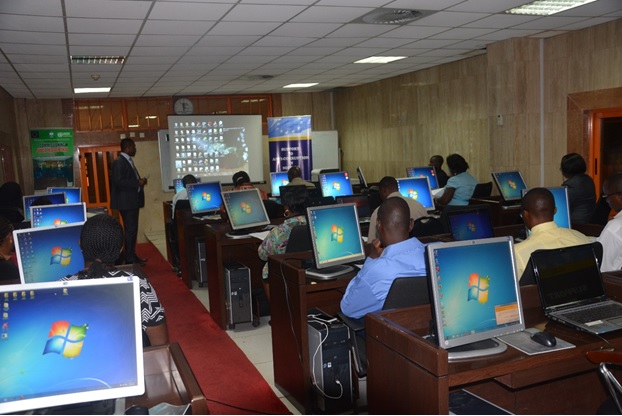Thirty secretaries of judges and registrars of the Federal Capital Territory (FCT) High Court (HC) are receiving a two-week basic skill of computer operation, use of the e-filing platform and the internet under the “Support to Anti-Corruption in Nigeria” project. The project is been funded by the European Union (EU) and is implemented by the United Nations Office on Drugs and Crime (UNODC).
Building the capacity of secretaries to judges and registrars on the use of computers and operation of a case management system (inclusive of an e-filing platform) at the FCT HC, will directly enhance the development of a database by the FCT HC and ultimately position the court to link up to a centralized database platform to enhance justice delivery in general and anti-corruption in particular.
The “Basic Computer Skills for Justice Sector Officials Training Manual” previously developed by the UNODC would be used as the main training material as well as Information Communication Technology facility deployed at the FCT HC Judicial Research Center, Maitama, Abuja, under the EU funded “Support to the EFCC and the Nigerian Judiciary” would be used as the training facility. Participants are drawn from the six judicial divisions of the FCT HC.
An institutional capacity assessment of the Federal Capital Territory, High Court (FCT HC) was conducted in 2014 under the current project. Part of the findings of the assessment is that the FCT HC has already commenced the deployment of a case management system, beginning with an e-filing platform. The assessment also indicated that there is a need to build the capacity judges and court staff in the use of Information Communication Technology (ICT). Subsequently, the management of the FCT HC identified as priority, ICT training for secretaries of judges in preparation for the full deployment of the e-filing system.
At the end of the training, participants are expected, to perform basic coupling of computers and operate computer systems and accessories; use Windows 7 programmes including MS Word, Power Point and Excel; access the internet, conduct basic search and use email accounts; understand the basic workings of case management and e-filing; and have a basic appreciation of legal words and phrases used in court proceedings.

